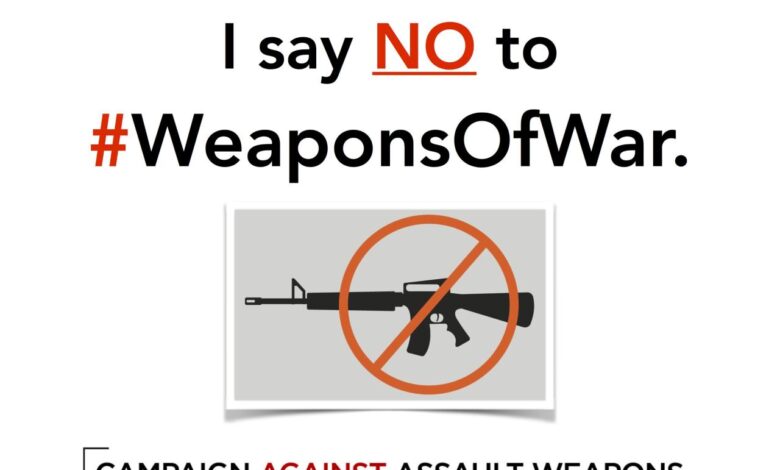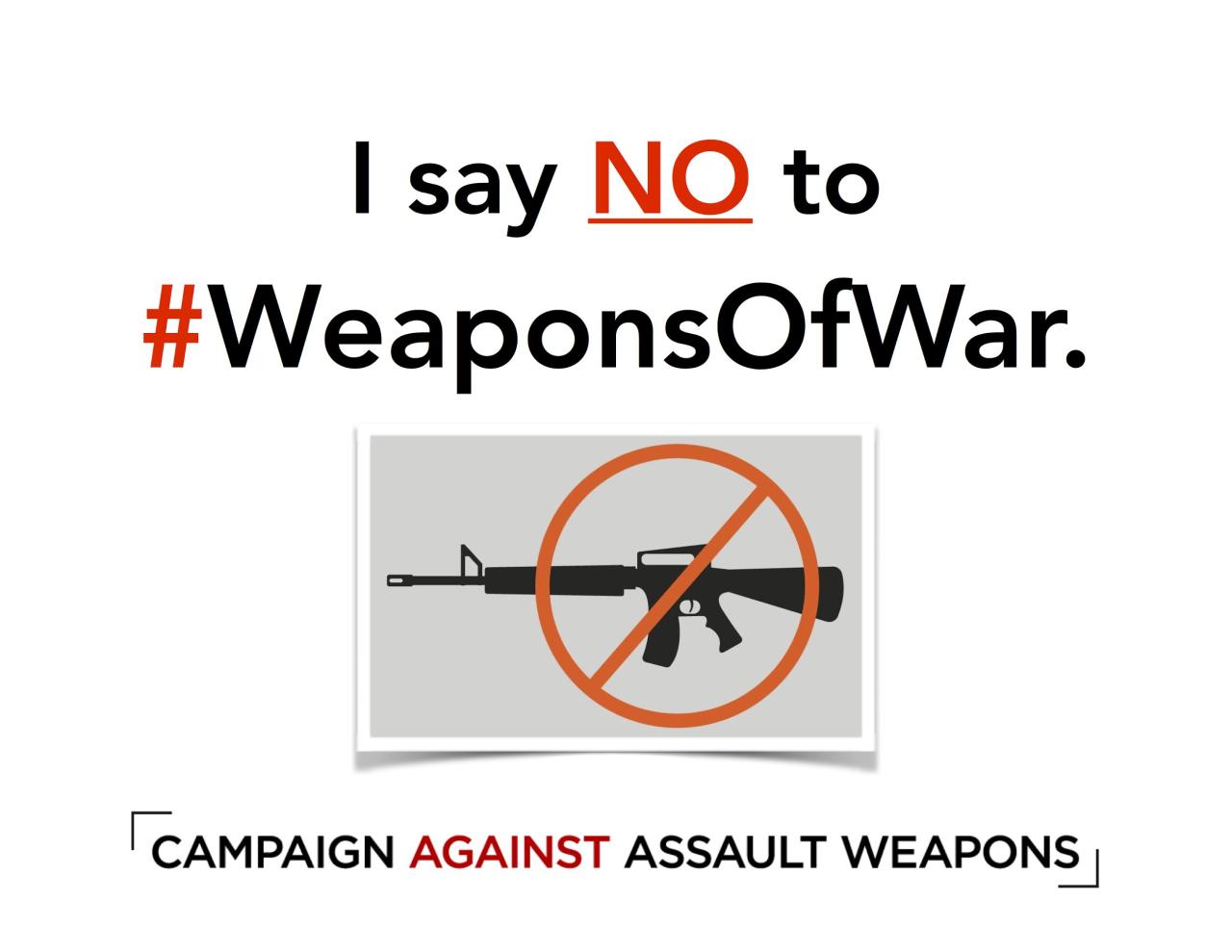
House Passes Assault Weapons Ban: A Controversial Move
House Passes Assault Weapons Ban: A controversial move that has ignited passionate debate across the nation. The bill, which passed with a narrow margin, aims to restrict the sale and possession of certain types of firearms and features, sparking heated discussions about gun control, individual rights, and the role of government in regulating gun ownership.
Proponents of the ban argue that it is a necessary step to reduce gun violence, citing statistics that link assault weapons to mass shootings and other violent crimes. They believe that by restricting access to these weapons, the bill will save lives and make communities safer.
Opponents, however, argue that the ban infringes on the Second Amendment rights of law-abiding citizens and does little to address the root causes of gun violence. They believe that focusing on mental health, enforcing existing laws, and addressing societal issues is a more effective approach.
The Assault Weapons Ban Bill
The House of Representatives has passed a bill to ban assault weapons, a significant step in the ongoing debate over gun control in the United States. The bill, if passed by the Senate, would restrict the sale, transfer, and manufacture of certain types of firearms and firearm features.
This legislation aims to reduce gun violence by limiting access to weapons commonly used in mass shootings.
Types of Firearms and Features Prohibited
The assault weapons ban bill prohibits the sale, transfer, and manufacture of specific firearms and features. This includes semi-automatic firearms that are designed and marketed for military or law enforcement purposes, commonly referred to as “assault weapons.” The bill also targets certain firearm features, such as high-capacity magazines, bump stocks, and detachable magazines that hold more than 10 rounds.
- Specific Firearms:The bill lists specific firearm models by name, including those manufactured by AR-15, AK-47, and other popular brands. These firearms are often characterized by their military-style appearance, including features like a pistol grip, a forward grip, and a folding stock.
- Firearm Features:The bill also prohibits the sale, transfer, and manufacture of specific firearm features, including:
- High-capacity magazines:Magazines that hold more than 10 rounds of ammunition.
- Bump stocks:Devices that allow semi-automatic firearms to fire rapidly, mimicking the rate of fire of a fully automatic weapon.
- Detachable magazines:Magazines that can be easily removed and replaced, allowing for rapid reloading.
- Flash suppressors:Devices that reduce the muzzle flash, making it harder to identify the shooter’s location.
- Shoulder stocks:Stocks that can be attached to pistols, effectively turning them into rifles.
Rationale for the Ban
Proponents of the assault weapons ban argue that these types of firearms are primarily designed for military and law enforcement purposes and have no legitimate civilian use. They argue that the high-capacity magazines and other features associated with assault weapons increase the lethality and effectiveness of these weapons in mass shootings.
They cite numerous examples of mass shootings where assault weapons were used, highlighting the devastating consequences of these weapons falling into the wrong hands.
“Assault weapons are designed for one purpose: to kill as many people as possible, as quickly as possible.”
They also argue that the ban is necessary to protect public safety and prevent future tragedies. They point to the fact that many countries have successfully implemented similar bans, resulting in a significant reduction in gun violence.
Political Reactions and Debates

The passage of the Assault Weapons Ban Bill sparked immediate and intense reactions from both Democrats and Republicans, highlighting the deep partisan divide on gun control in the United States.
Reactions from Democrats and Republicans
Democrats, who largely supported the bill, celebrated its passage as a significant step towards reducing gun violence. They argued that the ban was a necessary measure to protect communities from the devastating effects of mass shootings and other gun-related crimes.
They emphasized the importance of addressing the issue of assault weapons, citing their lethality and the fact that they are disproportionately used in mass shootings.Republicans, on the other hand, vehemently opposed the bill, arguing that it violated the Second Amendment rights of law-abiding citizens and would do little to prevent gun violence.
The House passing an assault weapons ban is a significant step towards gun control, but it’s not without its challenges. This move comes at a time when tensions are high in the region, as a Pelosi trip to Taiwan would test China’s appetite for confrontation.
The potential for international conflict adds another layer of complexity to the debate surrounding gun control in the United States.
They argued that the ban would only target law-abiding citizens, while criminals would continue to obtain weapons illegally. They also raised concerns about the bill’s potential impact on the economy, particularly for gun manufacturers and businesses that rely on the sale of assault weapons.
Arguments Made by Opponents of the Ban
Opponents of the ban raised a number of arguments against it, including:
- Second Amendment Rights:They argued that the ban infringed on the Second Amendment rights of law-abiding citizens to own and use firearms, including assault weapons. They claimed that the Second Amendment guarantees the right to bear arms for self-defense and other lawful purposes, and that the ban would effectively disarm law-abiding citizens while doing little to deter criminals.
- Ineffectiveness:Opponents argued that the ban would be ineffective in reducing gun violence, as criminals would continue to obtain weapons illegally. They pointed to the fact that many mass shootings have been carried out with weapons that were obtained illegally, and that the ban would not address the root causes of gun violence, such as mental health issues and social inequalities.
- Economic Impact:They expressed concerns about the potential negative impact of the ban on the economy, particularly for gun manufacturers and businesses that rely on the sale of assault weapons. They argued that the ban would lead to job losses and economic hardship in communities that depend on the gun industry.
Potential Impact on Gun Control Legislation and the Political Landscape
The passage of the Assault Weapons Ban Bill is likely to have a significant impact on gun control legislation and the political landscape in the United States. It is expected to reignite the debate over gun control, with both sides intensifying their efforts to advance their agendas.
The bill’s passage could embolden Democrats to push for further gun control measures, such as universal background checks and bans on high-capacity magazines. On the other hand, Republicans are likely to redouble their efforts to defend the Second Amendment and oppose any further restrictions on gun ownership.
The bill’s passage could also lead to increased polarization on the issue of gun control, with both sides digging in their heels and becoming more entrenched in their positions.The long-term impact of the bill on the political landscape remains to be seen.
It is possible that the bill could lead to a shift in public opinion on gun control, with more Americans coming to support stricter gun laws. However, it is also possible that the bill could backfire, leading to a backlash against gun control measures and a strengthening of the gun lobby.
Only time will tell what the ultimate impact of the bill will be.
Public Opinion and Societal Impact
The debate surrounding an assault weapons ban often hinges on public opinion and the potential societal impact. Understanding how the public feels about this issue and the possible consequences of enacting such a ban is crucial for policymakers and citizens alike.
This section will explore public opinion polls, potential societal impacts, and arguments for and against the ban’s effectiveness in reducing gun violence.
The House passing an assault weapons ban is a significant move, raising important questions about the balance between public safety and individual rights. It makes me wonder, though, if the very freedom of speech that allows for passionate debate on such issues, as explored in this insightful article free speech is essential for democracy could it also be democracys downfall , could also contribute to the polarization that fuels such heated political discussions.
Ultimately, finding a common ground that respects both safety and individual liberties will be crucial in navigating the complex landscape of gun control in the United States.
Public Opinion Polls and Surveys
Public opinion polls and surveys provide insights into how Americans view the assault weapons ban. Numerous polls conducted by reputable organizations reveal a significant level of support for such a ban. For example, a 2022 poll by the Pew Research Center found that 60% of Americans support a ban on assault-style weapons, while 38% oppose it.
The House passing an assault weapons ban is a significant step towards a safer America, but it’s also a reminder that true happiness comes from something much deeper than material possessions. As science says the more of this you give the happier youll be hint its not money , investing in genuine connections and meaningful experiences is far more likely to bring lasting joy than any gun control legislation, no matter how important it may be.
Ultimately, a safer society needs both responsible gun laws and a collective commitment to building a more compassionate and fulfilling world.
This suggests a substantial majority of Americans favor stricter gun control measures, including a ban on assault weapons.
Potential Societal Impact of the Ban, House passes assault weapons ban
The potential societal impact of an assault weapons ban is a complex and multifaceted issue. Proponents argue that such a ban would reduce gun violence and make communities safer. They point to the fact that assault weapons are disproportionately used in mass shootings, and that a ban would limit access to these powerful firearms.Opponents, however, argue that an assault weapons ban would infringe on Second Amendment rights and do little to reduce gun violence.
They contend that criminals would still find ways to obtain firearms, and that focusing on mental health and other social factors is a more effective approach to reducing gun violence.
Arguments for and Against the Ban’s Effectiveness in Reducing Gun Violence
The effectiveness of an assault weapons ban in reducing gun violence is a subject of ongoing debate. Proponents argue that such a ban would reduce the lethality of mass shootings and make it more difficult for criminals to obtain powerful firearms.
They cite the fact that assault weapons are designed for rapid fire and high-capacity magazines, making them particularly deadly in the hands of perpetrators.Opponents, however, argue that an assault weapons ban would have minimal impact on gun violence, as criminals would still find ways to obtain firearms.
They contend that focusing on mental health, background checks, and other measures would be more effective in reducing gun violence.
Legal Challenges and Future Prospects: House Passes Assault Weapons Ban

The Assault Weapons Ban Bill, if passed, would face significant legal challenges. The potential for litigation is high, as opponents argue that the ban infringes on constitutional rights.
Constitutional Challenges
The Second Amendment to the U.S. Constitution guarantees the right to bear arms. The ban’s opponents would likely argue that the ban violates this right by restricting access to a specific class of firearms. They might also argue that the definition of “assault weapon” is overly broad and vague, making it difficult for individuals to understand what firearms are prohibited.
- The ban could be challenged as being arbitrary and capricious, meaning it lacks a rational basis for restricting access to these weapons.
- Opponents might argue that the ban is not necessary to achieve the government’s stated goal of reducing gun violence.
Likelihood of Passage in the Senate
The Assault Weapons Ban Bill faces an uphill battle in the Senate. The current Senate is divided 50-50 between Democrats and Republicans, with Vice President Kamala Harris casting the tie-breaking vote. Passage of the bill would require at least 10 Republican senators to vote in favor, which is unlikely given the strong opposition to gun control within the Republican Party.
Future Prospects of Gun Control Legislation
The future of gun control legislation in the United States remains uncertain. The current political climate is highly polarized, making it difficult to find common ground on this issue. However, the recent increase in mass shootings has led to renewed calls for stricter gun control measures.
- While the likelihood of a comprehensive federal assault weapons ban passing in the near future is low, there may be opportunities for more limited gun control measures to be enacted, such as background checks, red flag laws, and bans on high-capacity magazines.
- The outcome of future elections could also play a significant role in the prospects of gun control legislation.
Final Wrap-Up
The House’s passage of the assault weapons ban marks a significant moment in the ongoing debate over gun control in the United States. The bill’s fate now rests in the hands of the Senate, where it faces an uphill battle.
The outcome of this legislation will have far-reaching implications for gun policy, the political landscape, and the future of gun control in America. Whether the ban ultimately becomes law or is ultimately rejected, it will undoubtedly continue to be a topic of intense discussion and debate for years to come.






